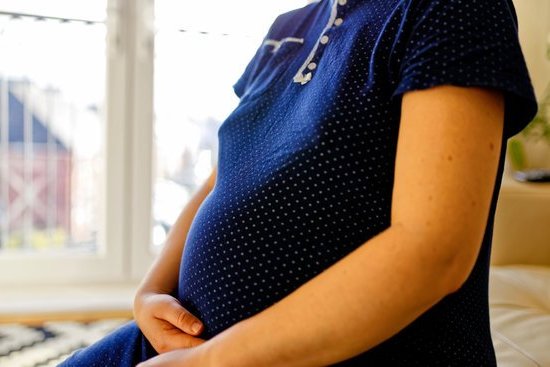During pregnancy, proper nutrition is essential not only for the mother’s health but also for the development of the baby. One key nutrient that plays a crucial role in maternal nutrition during pregnancy is iron. Adequate iron intake is vital for both the mother and the developing fetus, as it supports the increased red blood cell production and oxygen delivery needed during this time.
Iron is especially important during pregnancy as the body’s demand for this mineral significantly increases to support the expansion of maternal blood volume, placental development, and fetal growth. Inadequate iron levels can lead to serious complications such as anemia, preterm birth, and low birth weight. It is therefore essential for pregnant women to be mindful of their iron intake and incorporate iron-rich foods into their diets or consider supplementation when necessary.
In this article, we will explore the importance of iron in maternal nutrition during pregnancy, providing information on recommended daily intake, sources of dietary iron, risks associated with deficiency, and strategies to enhance absorption. Understanding these aspects of maternal nutrition can help expectant mothers make informed choices that promote both their own well-being and that of their growing baby.
Importance of Iron in Maternal Nutrition During Pregnancy
Iron is a crucial component of a pregnant woman’s diet as it plays a vital role in maternal nutrition during pregnancy. The body’s demand for iron increases during pregnancy to support the growth and development of the fetus, placenta, and expansion of the mother’s blood volume. Iron is also essential for proper oxygen transport in the body, which is especially important during pregnancy when the body requires extra oxygen to support the growing fetus.
To ensure adequate iron intake, pregnant women should incorporate iron-rich foods into their daily diet. These foods can help prevent iron deficiency anemia, a common condition in pregnant women that can lead to fatigue, weakness, and an increased risk of preterm birth or low birth weight. Some examples of iron-rich foods include:
- Lean red meat
- Poultry
- Fish
- Beans and lentils
- Leafy green vegetables (spinach, kale)
- Fortified cereals
In addition to consuming iron-rich foods, pregnant women should also pay attention to their daily iron intake. The recommended daily allowance of iron for pregnant women is 27 milligrams per day. It’s important to monitor iron levels through regular prenatal check-ups to ensure that both the mother and baby are receiving adequate levels of this essential nutrient.
Iron-Rich Foods for Pregnant Women
Iron is an essential nutrient for pregnant women, as it plays a vital role in the development of the fetus and the overall health of the mother. It is crucial for expecting mothers to consume an adequate amount of iron-rich foods to prevent iron deficiency anemia and ensure optimal health for both themselves and their babies.
Lean Meats
One of the best sources of heme iron, which is easily absorbed by the body, is lean meats such as beef, pork, and lamb. Including these in a pregnant woman’s diet can help meet her increased iron needs during pregnancy.
Leafy Green Vegetables
Vegetables like spinach, kale, and swiss chard are excellent sources of non-heme iron. While non-heme iron is not as easily absorbed as heme iron, consuming these vegetables alongside vitamin C-rich foods can enhance the absorption of iron.
Lentils and Legumes
Beans, lentils, chickpeas, and other legumes are great plant-based sources of iron. They also provide fiber and protein, making them a valuable addition to a pregnant woman’s diet.
By incorporating these iron-rich foods into their daily meals, expectant mothers can significantly contribute to meeting their increased iron requirements during pregnancy. It is important for pregnant women to consult with healthcare professionals to ensure they are meeting their specific nutritional needs during this crucial time in their lives.
Recommended Daily Iron Intake for Pregnant Women
Daily Iron Requirements
During pregnancy, a woman’s need for iron increases significantly. The recommended daily intake of iron for pregnant women is 27 milligrams per day, compared to 18 milligrams for non-pregnant women. This increased requirement is necessary to support the expansion of the mother’s red blood cell mass and to provide sufficient iron for the developing fetus.
Sources of Iron
Meeting the increased iron requirement during pregnancy can be challenging, especially for women who do not consume enough iron-rich foods in their diet. Some excellent sources of iron include lean red meat, poultry, fish, legumes, tofu, nuts, seeds, and fortified breakfast cereals. It’s important for pregnant women to incorporate a variety of these foods into their diets to ensure they are meeting their daily iron needs.
Consulting With a Healthcare Provider
Pregnant women should consult with their healthcare providers about their individual iron needs. In some cases, a healthcare provider may recommend an iron supplement to ensure that the pregnant woman is meeting her daily requirements. It’s important not to take iron supplements without medical supervision, as excessive amounts of iron can be harmful. Additionally, healthcare providers can offer guidance on optimizing dietary choices and enhancing iron absorption through meal planning.
By paying close attention to their daily intake of this essential nutrient and seeking guidance from their healthcare providers, pregnant women can ensure they are meeting the increased need for iron during pregnancy. Adequate maternal nutrition during pregnancy iron contributes not only to the health of the mother but also plays a vital role in supporting the development and well-being of the growing fetus.
Risks of Iron Deficiency During Pregnancy
Iron deficiency during pregnancy can have serious risks for both the mother and the baby. When a pregnant woman does not consume enough iron-rich foods or supplements, she may become anemic, leading to symptoms such as fatigue, weakness, and increased susceptibility to infections. In severe cases, iron deficiency anemia during pregnancy can increase the risk of preterm birth, low birth weight, and infant mortality.
According to the Centers for Disease Control and Prevention (CDC), iron is essential for making hemoglobin, a protein in red blood cells that carries oxygen to tissues throughout the body. During pregnancy, a woman’s body needs more iron to support the growing fetus and placenta, as well as her expanded blood volume. The recommended daily intake of iron for pregnant women is 27 milligrams per day, compared to 18 milligrams per day for non-pregnant women.
In addition to these immediate health risks, iron deficiency during pregnancy has also been linked to long-term consequences for the child. Studies have shown that children born to mothers with insufficient iron levels are at higher risk of cognitive and behavioral problems later in life. Therefore, it is crucial for pregnant women to prioritize their iron intake through diet or supplementation in order to mitigate these potential risks and ensure a healthy outcome for both themselves and their babies.
| Risks of Iron Deficiency | Impact |
|---|---|
| Anemia | Fatigue, weakness, increased susceptibility to infections |
| Poor Birth Outcomes | Preterm birth, low birth weight, infant mortality |
| Long-Term Consequences for Child | Cognitive and behavioral problems later in life |
Supplements and Iron Fortification for Pregnant Women
Iron supplements and iron fortification play a crucial role in ensuring that pregnant women maintain adequate levels of iron during their pregnancy. While it is important for pregnant women to consume iron-rich foods, sometimes it may be difficult to meet the recommended daily intake through diet alone. This is where iron supplements and fortified foods come into play.
Pregnant women are at an increased risk of developing iron deficiency due to the higher demand for iron in their bodies. Iron supplements can help meet this increased demand and prevent the development of anemia. It is important for pregnant women to consult with their healthcare provider before starting any supplements, as excessive iron intake can also lead to health complications.
In addition to supplements, iron fortification in certain foods can also contribute to fulfilling the iron requirements during pregnancy. Fortified cereals, bread, and pasta are examples of food products that have been enriched with additional iron.
These fortified foods can be helpful for pregnant women who may struggle to obtain enough iron from their regular diet. By incorporating both supplements and fortified foods into their nutrition plan, pregnant women can better ensure that they are meeting their daily iron intake needs for a healthy pregnancy.
Impact of Iron on Fetal Development
Iron is a crucial nutrient for fetal development during pregnancy. The fetus requires iron to support the growth and development of its own blood supply and organs. Adequate iron intake during pregnancy is essential for preventing iron deficiency anemia in both the mother and the developing baby. Here are some key points regarding the impact of iron on fetal development:
- Iron supports the production of hemoglobin, which carries oxygen to the fetus: Hemoglobin is a protein in red blood cells that carries oxygen from the lungs to the rest of the body, including the placenta and the growing fetus.
- Iron is important for brain development: Adequate iron levels are crucial for supporting normal cognitive development in the unborn child. Iron deficiency during pregnancy has been associated with potential negative effects on cognitive function and behavior in offspring.
- Lack of sufficient iron may lead to preterm birth and low birth weight: Iron deficiency anemia can increase the risk of premature birth and low birth weight, which may have long-term health implications for the baby.
It’s clear that maintaining adequate levels of iron during pregnancy is vital for supporting optimal fetal development. Pregnant women should focus on consuming sufficient amounts of iron-rich foods, taking supplements as needed, and being mindful of factors that can enhance or inhibit iron absorption within their diet.
Tips for Enhancing Iron Absorption During Pregnancy
Iron absorption is a crucial aspect of maternal nutrition during pregnancy. Ensuring that pregnant women are able to effectively absorb iron from their diet can help prevent iron deficiency and its associated risks. There are several tips and strategies that can help enhance iron absorption during pregnancy.
One important tip for enhancing iron absorption is to consume vitamin C-rich foods alongside iron-rich foods. Vitamin C helps increase the absorption of non-heme iron, which is the type of iron found in plant-based foods such as beans, lentils, and fortified cereals. Including fruits like oranges, strawberries, and kiwi or vegetables like bell peppers and broccoli in meals can help improve the body’s ability to absorb iron.
Another tip for enhancing iron absorption is to avoid consuming calcium-rich foods or supplements at the same time as iron-rich foods or supplements. Calcium can inhibit the absorption of non-heme iron, so it’s best to consume calcium sources at a different time than when consuming iron-rich foods or taking an iron supplement.
Additionally, it’s important for pregnant women to avoid drinking tea or coffee with meals, as these beverages contain compounds that can reduce the absorption of non-heme iron. Instead, opting for herbal teas or other caffeine-free beverages can support better iron absorption.
By following these tips and incorporating them into their daily routine, pregnant women can enhance their body’s ability to absorb the vital nutrient of iron, thus supporting their own health as well as the healthy development of their unborn child.
Conclusion
In conclusion, the importance of iron in maternal nutrition during pregnancy cannot be overstated. As outlined in this article, iron plays a vital role in ensuring the health and well-being of both the mother and the developing fetus. It is crucial for pregnant women to consume iron-rich foods and meet their recommended daily iron intake to prevent the risks of iron deficiency during pregnancy.
Furthermore, supplements and iron fortification can also be beneficial for pregnant women who may have difficulty meeting their iron needs through diet alone. These measures can help reduce the risk of complications associated with iron deficiency, such as anemia, preterm birth, and low birth weight.
Ultimately, understanding the impact of iron on fetal development and implementing strategies to enhance iron absorption during pregnancy are essential for ensuring optimal maternal and fetal health. By prioritizing maternal nutrition during pregnancy and focusing on adequate iron intake, expectant mothers can take proactive steps towards promoting a healthy pregnancy and positive birth outcomes.
Frequently Asked Questions
Why Is Iron So Important for the Mother During Pregnancy?
Iron is crucial for the mother during pregnancy because it is needed to produce hemoglobin, the protein in red blood cells that carries oxygen to the body’s tissues. During pregnancy, a woman’s blood volume increases significantly, and as a result, her iron needs also increase to support both her own health and the development of the baby.
What Is the Nutrition Need for Increased Iron During Pregnancy?
The nutrition need for increased iron during pregnancy can be met through a combination of dietary sources and supplements. Consuming iron-rich foods such as lean meats, fish, poultry, legumes, and fortified cereals can help meet the higher iron requirements. Additionally, prenatal vitamins often contain iron to help bridge any nutritional gaps.
What Is the Average Maternal Requirement of Iron During Pregnancy?
The average maternal requirement of iron during pregnancy is around 27 milligrams per day. This amount is significantly higher than the typical recommendation for non-pregnant women, as the body’s demand for iron increases to support the growth of both maternal and fetal tissues during pregnancy.
It’s important for pregnant women to ensure they are meeting their daily iron needs to prevent deficiency and support overall health.

Welcome to my fertility blog. This is a space where I will be sharing my experiences as I navigate through the world of fertility treatments, as well as provide information and resources about fertility and pregnancy.





